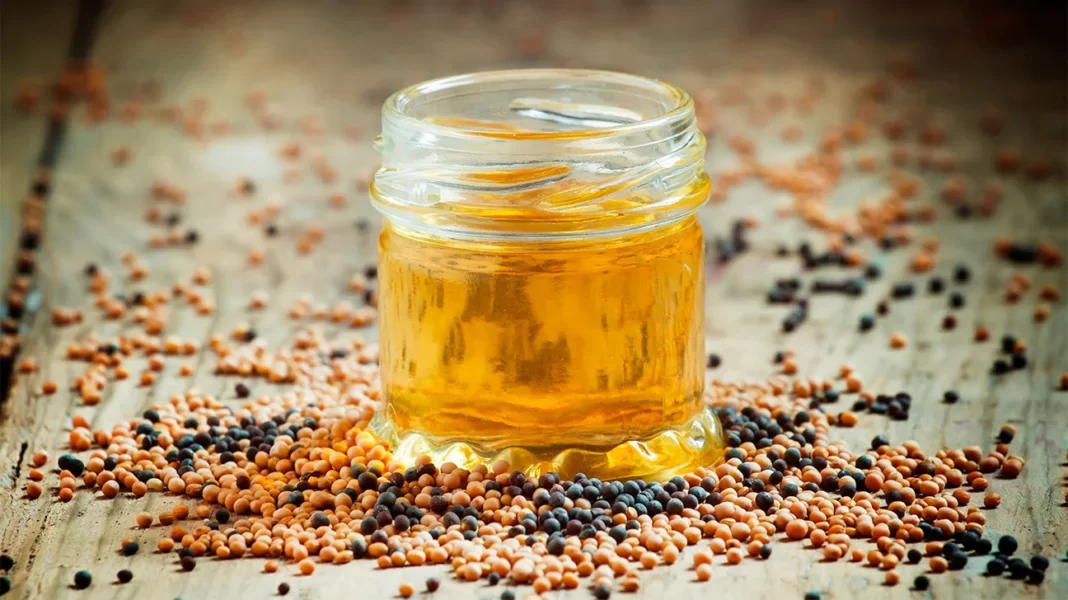In the pursuit of healthy and vibrant hair, individuals are increasingly turning to natural remedies. Dr. Saurabh Shah, a renowned dermatologist, cosmetologist, dermatosurgeon, and hair transplant surgeon at Bhatia Hospital Mumbai, sheds light on the transformative benefits of a concoction involving mustard oil, fenugreek seeds, and almond oil.
Mustard oil, a staple in many households, plays a pivotal role in this hair care regimen. Dr. Shah explains, “Mustard oil is not just a cooking essential; it possesses unique properties that promote hair growth. Its antibacterial and antifungal properties make it effective in combating scalp infections, a common culprit behind hair fall.”
Adding fenugreek seeds to the mix takes this natural remedy to the next level. Dr. Shah highlights the significance of fenugreek seeds, stating, “These seeds are a powerhouse of nutrition, containing high protein content and vitamin B3 (nicotinic acid). This nutrient-rich combination makes fenugreek seeds an excellent solution for addressing hair fall and dandruff issues.”
Fenugreek seeds have been a part of traditional remedies for centuries, celebrated for their ability to nourish hair follicles and promote hair health. Dr. Shah points out, “The protein content in fenugreek seeds helps strengthen hair strands, reducing breakage and hair fall. Additionally, vitamin B3 enhances blood circulation to the scalp, fostering a conducive environment for hair growth.”
Almond oil, another key ingredient, complements the benefits of mustard oil and fenugreek seeds. Dr. Shah explains, “Almond oil is a rich source of essential fatty acids, antioxidants, and vitamins, particularly vitamin E. This combination nourishes the hair from root to tip, providing the necessary moisture and strength for optimal growth.”
Dr. Saurabh’s Recommended Hair Oil
The process of preparing this hair growth elixir is simple. Dr. Shah recommends soaking fenugreek seeds overnight and grinding them into a paste. This paste is then mixed with equal parts of mustard oil and almond oil. The resulting blend is applied to the scalp and hair, massaging gently to ensure even distribution. Leave it on for at least an hour before washing it off with a mild shampoo.
Regular use of this natural remedy can yield noticeable results, promoting hair growth, reducing hair fall, and addressing dandruff concerns. Dr. Shah emphasizes the importance of consistency, saying, “Natural remedies take time to show results. It’s crucial to be patient and incorporate these treatments into your routine for sustained benefits.”
As individuals increasingly seek alternatives to chemical-laden hair care products, the resurgence of traditional remedies gains momentum. Dr. Shah’s insights into the benefits of mustard oil, fenugreek seeds, and almond oil provide a holistic and natural approach to addressing common hair issues.
It’s essential to note that while natural remedies can be effective for many, individual responses may vary. Consulting with a dermatologist or healthcare professional is advisable, especially for those with specific scalp conditions or allergies.
Dr. Saurabh Shah further elaborates on the holistic benefits of the mustard oil, fenugreek seeds, and almond oil concoction. He emphasizes that beyond promoting hair growth, this blend can contribute to overall scalp health. Mustard oil’s antimicrobial properties help in preventing infections, keeping the scalp clean and healthy. Fenugreek seeds, with their anti-inflammatory qualities, can soothe an irritated scalp, reducing itching and flakiness.
Additionally, almond oil’s moisturizing properties can combat dryness, enhancing the overall texture of the hair. Dr. Shah explains, “Dryness can lead to brittleness and breakage. Almond oil acts as a natural conditioner, leaving the hair soft, manageable, and less prone to damage.”
The multifaceted benefits of these natural ingredients make this DIY hair care solution an attractive option for those seeking a comprehensive approach to hair health. Dr. Shah underscores the importance of a balanced diet alongside external treatments, stating, “While topical applications are beneficial, a well-nourished body is essential for healthy hair. Adequate protein intake, hydration, and a nutrient-rich diet contribute significantly to the effectiveness of any hair care routine.”
In the context of rising concerns about the environmental impact of beauty products, this natural hair care remedy also aligns with sustainable practices. Dr. Shah notes, “Using locally sourced, natural ingredients not only benefits your hair but also reduces the ecological footprint associated with commercial hair care products.”
As the popularity of natural remedies grows, Dr. Shah encourages individuals to be discerning consumers. “Not all natural remedies work for everyone, and it’s crucial to pay attention to how your hair responds. What works for one person may not work for another, and customization based on individual needs is key,” he advises.

